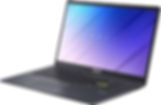
One computer costs 800$, second one with the same specs 3000$. Why?
May 27, 2024
3 min read
In the diverse world of laptops, one significant distinction is between consumer-grade and business-grade models. While they may look similar at a glance, these categories serve different purposes and come with distinct features tailored to their respective user bases. Understanding these differences can help users make informed decisions based on their specific needs.
Design and Build Quality
Consumer Grade:

Consumer-grade laptops are designed with aesthetics in mind. They often feature sleek, stylish designs with a focus on portability and visual appeal. Materials often include plastics and cheaper aluminum, with various color options to attract different tastes. Durability is generally adequate for everyday use, but not necessarily for rigorous handling.

Business Grade:
Business-grade laptops prioritize durability and practicality. They are often built with robust materials such as magnesium alloy or carbon fiber, designed to withstand drops, spills, and other mishaps common in a professional environment. Many business laptops undergo rigorous testing for reliability and durability, including MIL-STD 810G military-grade testing.
Performance and Specifications
Consumer Grade:
Consumer laptops typically offer a wide range of configurations to cater to different user needs, from basic models for web browsing and office tasks to high-performance machines for gaming and multimedia editing. They often include features like high-resolution displays, powerful GPUs, and advanced cooling systems to handle demanding applications.
Business Grade:
Business laptops are configured to provide reliable performance for office productivity. They prioritize processors optimized for efficiency and stability, such as Intel’s vPro series. RAM and storage options are geared towards multitasking and data management rather than gaming or graphic design. Battery life is often extended to ensure all-day usage without frequent recharging.
Security Features
Consumer Grade:
Security features on consumer laptops are usually basic, sufficient for personal use. They might include password protection, basic biometric authentication like fingerprint readers, and standard software-based encryption.
Business Grade:
Security is a top priority for business laptops. They come equipped with advanced security features such as hardware-based encryption (TPM - Trusted Platform Module), smart card readers, fingerprint scanners, and facial recognition. Many models also support secure BIOS and firmware updates, and remote management capabilities to protect sensitive business data.
Software and IT Support
Consumer Grade:
Consumer laptops come with operating systems and software pre-installed that are designed for general use. These might include trial versions of productivity software and antivirus programs. Technical support is often limited to standard warranty services and customer helplines.
Business Grade:
Business laptops often include professional versions of operating systems, like Windows Pro, which offer advanced features like BitLocker encryption and remote desktop functionality. They are designed to integrate seamlessly into corporate IT environments, with support for virtualization and enterprise-level management tools. Warranty and support services for business laptops are typically more comprehensive, including on-site repairs and extended service plans.
Connectivity and Expansion Options
Consumer Grade:
Consumer laptops usually have a standard set of ports and connectivity options, suitable for common peripherals like USB drives, HDMI for external displays, and basic networking capabilities. Thunderbolt and USB-C are increasingly common but not guaranteed.
Business Grade:
Business laptops excel in connectivity and expansion options. They often feature a wider array of ports, including multiple USB-C and Thunderbolt 3/4 ports, Ethernet ports, and docking station compatibility for enhanced productivity. Additionally, they support advanced wireless connectivity options, such as Wi-Fi 6 and LTE, ensuring constant connectivity for mobile professionals.
Price and Value
Consumer Grade:
Consumer laptops cover a broad price range, making them accessible to a wide audience. While high-end models can be expensive, budget-friendly options are abundant, offering good value for everyday computing needs.
Business Grade:
Business laptops tend to be more expensive due to their enhanced build quality, security features, and support services. However, for businesses, the investment is justified by the reliability, longevity, and reduced downtime these laptops provide, making them cost-effective in the long run.
Conclusion
Choosing between a consumer-grade and a business-grade laptop hinges on understanding your specific needs. If you seek a stylish, multimedia-friendly device for personal use, a consumer laptop may suffice. Conversely, if your priority is durability, security, and integration into a corporate IT infrastructure, a business-grade laptop is the superior choice. Each type is designed to excel in its respective domain, ensuring that users have the right tool for their particular tasks.
May 27, 2024
3 min read



